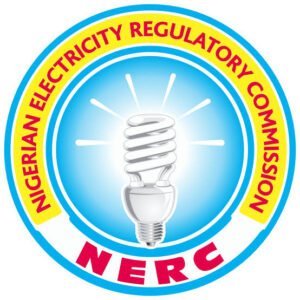The Nigerian Electricity Regulatory Commission, NERC, on Wednesday, January 17, released the 2024 electricity tariffs which revealed that the Federal Government is to bear the responsibility of about N1.6 trillion subsidy for the year to prevent electricity tariff hikes.
NERC, in the tariff review applications of the 11 power distribution companies, DisCos, in Nigeria, revealed what it approved as their different cost-reflective tariffs and what was allowed as tariffs by the commission following the Federal Government’s subsidy.
The commission disclosed this in the regulatory instruments on the Multi-Year Tariff Order 2024 for the different power distribution companies.
According to NERC, the order shall take effect from January 1, 2024, and shall cease to be effective on the issuance of a new tariff review order by the commission for each particular distribution company.
The reports indicated that the tariffs should naturally rise considering various economic fundamentals and industry parameters such as the rise in foreign exchange, cost of gas, inflation, among others.
But an analysis of the Multi-Year Tariff Order 2024 documents for various Discos indicated that the NERC retained the electricity tariffs for 2023, based on the subsidy being paid by the government this year.
The cumulative subsidy for 2024 is what the power sector regulator puts at N1.6 trillion.
It must, however, be stated that what the Discos submitted to the NERC as their own calculated cost-reflective tariffs were far higher than the cost-reflective tariffs approved for them by the regulator.
However, despite approving lower cost-reflective tariffs for the power firms, the allowed tariffs were further reduced, as the balance would be sorted by the N1.6 trillion subsidy to be paid by the Federal Government.
The Federal Government has been paying subsidies on electricity before now, but it has not been this much.
For instance, on December 18, 2023, the Federal Government spent N375.8 billion on electricity subsidy between January and September 2023, as power consumers paid a total of N782.6 billion for the commodity during the same period.
The report stated that in the first quarter of 2023, the Federal Government subsidized power by N36 billion, this increased to N135.2 billion in the second quarter, and jumped to N204.6 billion in the third quarter. Figures for the fourth quarter are not released yet.
However, NERC, on Wednesday, January 17, stated that the N1.6 trillion subsidy for 2024 was too high and stressed that it was not sustainable.
It also revealed that four states had developed their electricity law, while four others were in the process of completing theirs.
Providing explanation on the new tariff order released by the commission, the Chairman, NERC, Sanusi Garba, said, “On the MYTO, I want to correct the wrong impression that for one year we haven’t had any reviews.
“The reality is that the reviews are being done, but what has happened is that what you pay as a customer is a blend of regulation and policy. So if we determine that you should be paying N150 and the Federal Government says ‘no you should pay N60, I will pay the difference,’ then that’s what it is. The government will now provide the money.
“So that is why in the current tariff order, you will see that this is what you should pay, while this is what the government says you should pay, because the government will provide the difference, until there is a change of policy.”
Also commenting on the development, the Vice Chairman, NERC, Musiliu Oseni, declared that the N1.6 trillion electricity subsidy was unsustainable, stressing that subsidy was more beneficial to the rich.
On states that have enacted their own electricity laws, the Commissioner, Legal, Licencing and Compliance, NERC, Dafe Akpeneye, said four states now have their own electricity laws, while four others were putting the finishing touches on theirs.
Outlining states that have developed their power laws, he said, “Basically it is Ondo, Ekiti, Enugu, and Anambra. Lagos, Osun, Edo, and Kano are work in progress.”
In June 2023, President Bola Tinubu assented to the electricity bill, which empowers states, companies and individuals to generate, transmit, and distribute electricity.
The new electricity law repeals the Electricity and Power Sector Reform Act of 2005 and consolidates the laws relating to the Nigerian Electricity Supply Industry.
Recall that the Senate had passed the electricity bill in July 2022 to solve the sector’s challenges.

